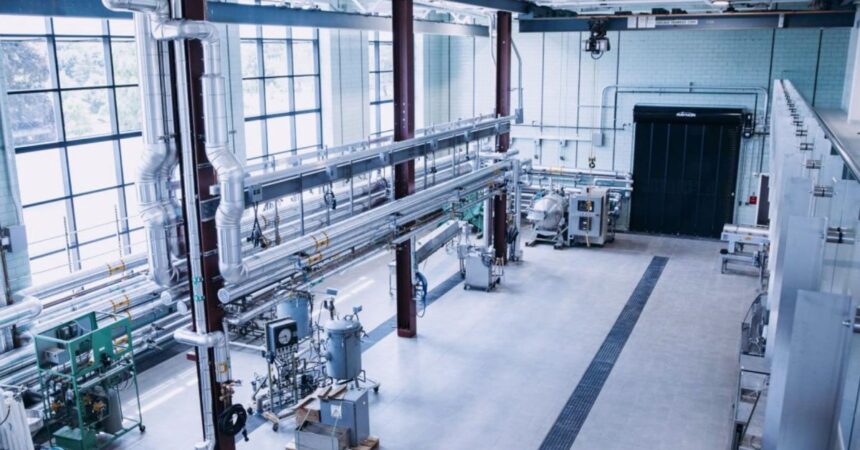Anthro Energy, a key player in the battery supply chain, has recently received a substantial $24.9 million grant from the US Department of Energy. This grant is set to have a significant impact on US electric vehicle (EV) production by bolstering the domestic battery supply chain.
The grant, part of the Office of Manufacturing and Energy Supply Chains initiative, aligns with the Biden-Harris administration’s focus on modernizing US infrastructure and promoting clean energy innovation through the Bipartisan Infrastructure Law. With this funding, Anthro Energy plans to repurpose an existing site in Louisville, Kentucky, into the first large-scale, US-owned and operated advanced electrolyte production facility.
But what exactly is advanced electrolyte? It is a high-performance material crucial to the operation of lithium-ion batteries, enhancing their safety, longevity, and overall performance. These electrolytes play a vital role in the next wave of battery innovation, which includes technologies like silicon anodes and high-voltage cathodes that are poised to revolutionize EVs.
Once operational, the 25 GWh Louisville facility will have the capacity to produce 12,000 metric tons of advanced electrolyte annually. This marks a significant milestone for the US battery supply chain, as there has previously been a lack of large-scale, domestically owned producers of this critical component within the country.
Establishing this facility not only strengthens US energy independence but also reduces reliance on foreign supply chains for battery materials. Anthro Energy anticipates creating 114 full-time jobs and 390 temporary construction jobs through this project, further contributing to the local economy.
David Mackanic, CEO of Anthro Energy, hailed the grant as a “pivotal moment” for the company and the US battery manufacturing industry. He emphasized the importance of establishing the nation’s first facility for domestic production of advanced electrolytes, highlighting its role in advancing energy independence and propelling the country towards a clean energy economy.
In addition to job creation, the Louisville project aims to support the local community through investments in workforce development, education, and sustainability initiatives. This initiative is part of the DOE’s broader efforts to build a resilient, clean energy economy and achieve net zero emissions by 2050, in line with the goals of the Bipartisan Infrastructure Law.
As the US continues to prioritize clean energy and sustainable practices, investments like the one made in Anthro Energy are crucial for driving innovation, supporting economic growth, and ensuring a greener future for generations to come.







